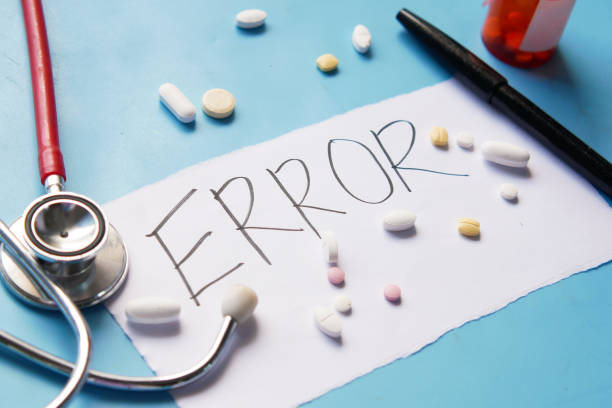October 2022 was a big turning point for the hearing industry. Pharmacies and other retailers were allowed to sell over-the-counter (OTC) hearing aids after having been restricted for decades. What’s more, different types of hearing aids are now categorized with very clear lines of demarcation to differentiate them. Patients can choose from prescription hearing aids, OTC hearing aids, and personal sound amplification products (PSAPs), also known as amplifiers.
With over-the-counter hearing aids now stocked on store shelves along with PSAPs, it’s important to talk with patients about the differences between the two. While they both utilize technology to help with hearing, they have completely different outcomes.
It wasn’t until recently that PSAPs began gaining popularity. With improved technology and much lower prices, they’ve caught the attention of many consumers with hearing loss. However, they are intended for those who do not have hearing loss, but instead wish to enhance their listening experience in certain situations. Here are the main differences between hearing aids, OTC hearing aids, and PSAPs:
Prescription Hearing Aids:
These FDA-approved, sound-amplifying medical devices are made to compensate for impaired hearing. They are medical devices manufactured and programmed for a person’s specific hearing loss and are worn behind or in the ear. A prescription is needed for purchase. They’re distributed by licensed audiologists; ear, nose, and throat doctors; or sellers who are licensed to dispense hearing aids. Cost: $4000—$6,000
Over-the-Counter (OTC) Hearing Aids:
OTC hearing aids make up a new category of hearing aids for those with perceived mild-to-moderate hearing loss. These are self-care devices, which means patients can buy them in the store or online without seeing a physician for an exam or an audiologist for help with fitting. Cost: $300—$2,000
Personal Sound Amplification Product (PSAP):
PSAPs are consumer electronic products that amplify sounds or provide clarity in noisy environments. They make all sounds louder, including the ones that wearers already hear well. They are not made for people with hearing loss. The National Institute on Deafness and Other Communication Disorders (NIDCD) states that amplifiers are best for those with little-to-no hearing loss to boost their ability to hear in certain situations. Cost: $250—$500
“The PSAPs aren’t indicated for someone with hearing impairments, and they’re not an FDA-registered medical device,” said Anthony Florek, President of Soundwave Hearing, LLC. “They were originally designed for hobbyists who walk through the woods and want to hear the birds from a distance. They’re also great if you’re in a very quiet room while talking to one person across a table. But as soon as you get out into a noisy environment of any kind, it can be very frustrating because amplifiers amplify everything.”
Helping Patients Choose the Right Hearing Device
Knowing which type of hearing help is best can be frustrating for your patients. That’s where you come into the picture to help them understand the differences between hearing aids and PSAPs. You can also help them compare the features of each and let them know if a visit with an audiologist is needed.
Your patients may want to consider a PSAP if they:
- Sometimes have trouble focusing on people’s voices during conversations
- Need a higher volume setting on the TV than other people
- Take part in hobbies that may require amplified sound (i.e. bird watching, movies, etc.)
- Often have difficulty hearing a speaker’s voice during a lecture or presentation
Your patients may want to consider a hearing aid if they:
- Were diagnosed with a form of mild to severe hearing loss by a professional, licensed hearing specialist
- Are affected by their hearing loss negatively in day-to-day situations
- Want to protect themselves from further hearing loss
“No OTC for You!”
OTC hearing aids aren’t for everyone. Here’s why:
Severe or profound hearing loss
OTC hearing aids are intended for people with mild-to-moderate hearing loss. Those with severe or profound hearing loss need specialized, high-powered hearing aids or surgically implanted devices.
History of ear infections or fluctuating hearing loss
People who have a history of chronic ear infections or fluctuating hearing loss should seek the help of a hearing care professional.
Children and teens (early onset)
OTC hearing aids are not designed for children with hearing loss. Hearing aids for kids need to be programmed and optimized to help them do their best in school. Plus, children’s ears change shape as they grow. This requires custom earpieces and specialized, pediatric hearing aids.
Sudden onset hearing loss
Anyone with a sudden change in hearing should seek immediate medical advice from an ENT or emergency department. A sudden hearing loss can be a sign of another medical problem and should be evaluated, especially if accompanied by dizziness or tinnitus. Prompt treatment might restore hearing, but if not, a prescription hearing aid will likely be needed.
Unilateral or asymmetrical hearing loss
If there is hearing loss in both ears, but one ear hears better than the other, OTC hearing aids are not the right treatment option. The same is true if only one ear has hearing loss. The first step should be to see an audiologist or ENT to rule out other medical conditions that can cause this type of hearing loss.
Unusual ear canal geometry
People with very narrow ear canals, curvy ear canals, or surgical ears, should consult with a professional before considering an OTC hearing aid.
(Source: https://www.healthyhearing.com)
From the Magazine
This article was published in our quarterly print magazine, which covers relevant topics in greater depth featuring leading experts in the industry. Subscribe to receive the quarterly print issue in your mailbox. All registered independent pharmacies in the U.S. are eligible to receive a free subscription.
More articles from the September 2023 issue:
- All Eyes on EG.5.1
- Your Extraordinary Front End
- AI Chatbots in Health Care
- Medication Adherence Programs
- DSCSA Deadline Looming
- Unsalable Products
- DIR Rule Changes
- Hearing Aids vs. PSAPs
A Member-Owned Company Serving Independent Pharmacies
PBA Health is dedicated to helping independent pharmacies reach their full potential on the buy-side of their business. Founded and run by pharmacists, PBA Health serves independent pharmacies with group purchasing services, wholesaler contract negotiations, proprietary purchasing tools, and more.
An HDA member, PBA Health operates its own NABP-accredited warehouse with more than 6,000 SKUs, including brands, generics, narcotics CII-CV, cold-storage products, and over-the-counter (OTC) products — offering the lowest prices in the secondary market.












